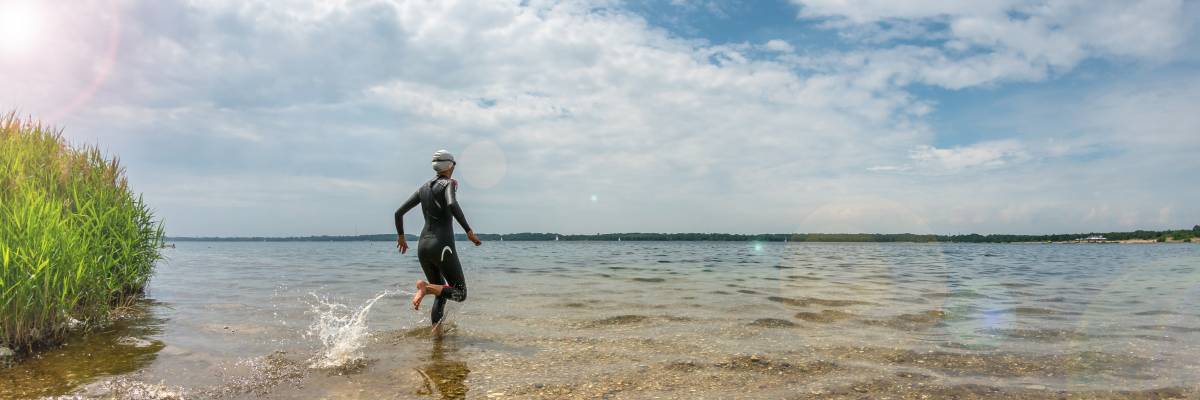Open water swimming can trigger pulmonary oedema in apparently fit people, researchers warn
People can develop pulmonary oedema as a result of an open water swimming session, according to an article appearing in the current issue of BMJ Case Reports.
Risk factors include being in an older age bracket, swimming long distances, swimming in cold water, and being female. While other factors include having high blood pressure and pre-existing heart disease, the condition can occur in those who are otherwise fit and healthy, the authors note.
Open water swimming has become very popular, with more than three million enthusiasts being recorded in England in 2021. But mounting evidence points to a link between the activity and a condition called swimming-induced pulmonary oedema (SIPE).
First reported in 1989, SIPE leaves swimmers struggling to draw breath and depletes their blood of vital oxygen. It is thought to affect from one to two open water swimmers in 100, but cases are likely to be underreported, say the authors.

Scans revelead myocardial oedema
The case study in the paper focuses on a woman in her fifties who was a keen competitive long-distance swimmer and triathlete.
Otherwise fit and well, she struggled to breathe and coughed up blood after taking part in an open water swimming event at night in water temperatures of about 17°C while wearing a wetsuit. Her symptoms started after swimming 300 metres.
The woman had no medical history of note, but had experienced breathing difficulties during an open water swim a fortnight earlier that had forced her to abandon the event and left her feeling breathless for some days afterwards.
On arrival at hospital, her heartbeat was rapid, and a chest X-ray revealed pulmonary oedema. Further scans revealed that fluid had infiltrated the heart muscle, a sign of strain known as myocardial oedema. But she had no structural heart disease.
Her symptoms settled within two hours of arrival at hospital and, after careful monitoring, she was discharged the following morning.
While the exact cause SIPE remains unclear, it could be linked to increases in arterial pressure in the lungs secondary to centralisation of blood volume in a cold environment, combined with an exaggerated constriction of these blood vessels in response to the cold and increased blood flow during physical exertion.
At present, there are no formal national medical guidelines concerning the recognition and management of this complex condition [James Oldman et al]
Recurrence found in up to 22 per cent of scuba divers
Recurrence is common and has been reported in from 13-22 per cent of scuba divers and swimmers, suggesting a predisposition to the condition, say the authors.
They advise people to swim at a slower pace, while accompanied, in warmer water, without a tight-fitting wetsuit, and to avoid taking non-steroidal anti-inflammatories, such as ibuprofen, to minimise the risk.
For those experiencing symptoms for the first time, the authors recommend stopping swimming and getting out of the water straight away, then sitting upright, and calling for medical assistance if required.
Conclusion
The paper describes a single one case, emphasise the authors, who wanted to raise awareness about a relatively obscure condition.
‘The UK Diving Medical Committee has published guidance for divers. However, at present, there are no formal national medical guidelines concerning the recognition and management of this complex condition,’ says first author James Oldman, who is based at the Royal United Hospitals Bath NHS Foundation Trust's cardiology department.
To read the full version of the article, titled Myocardial oedema in the setting of immersion pulmonary oedema - Cause or effect? Doi 10.1136/bcr-2022-251274, visit: https://casereports.bmj.com/lookup/doi/10.1136/bcr-2022-251274
Author: Ian A McMillanShare it with














